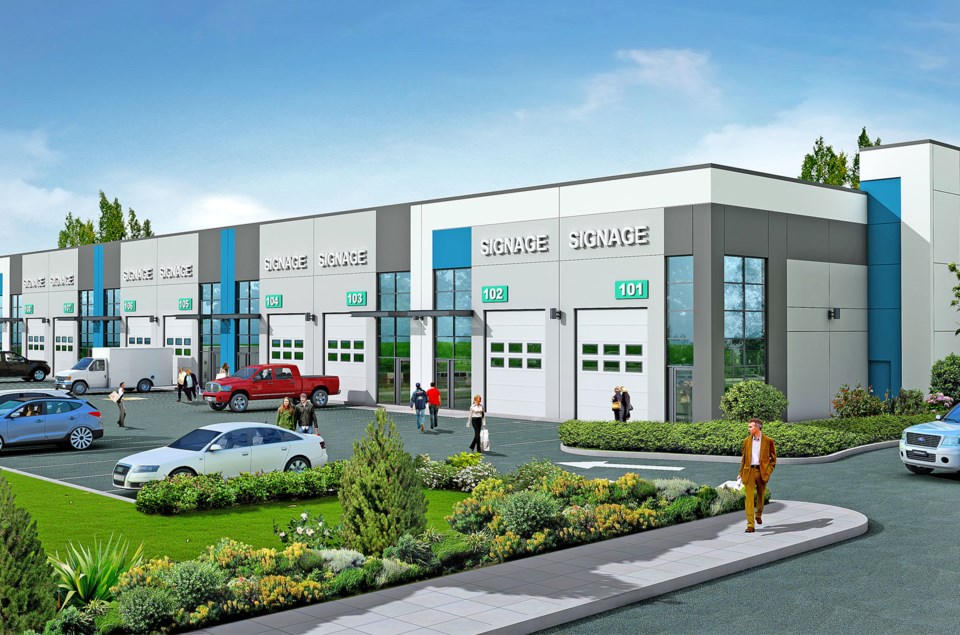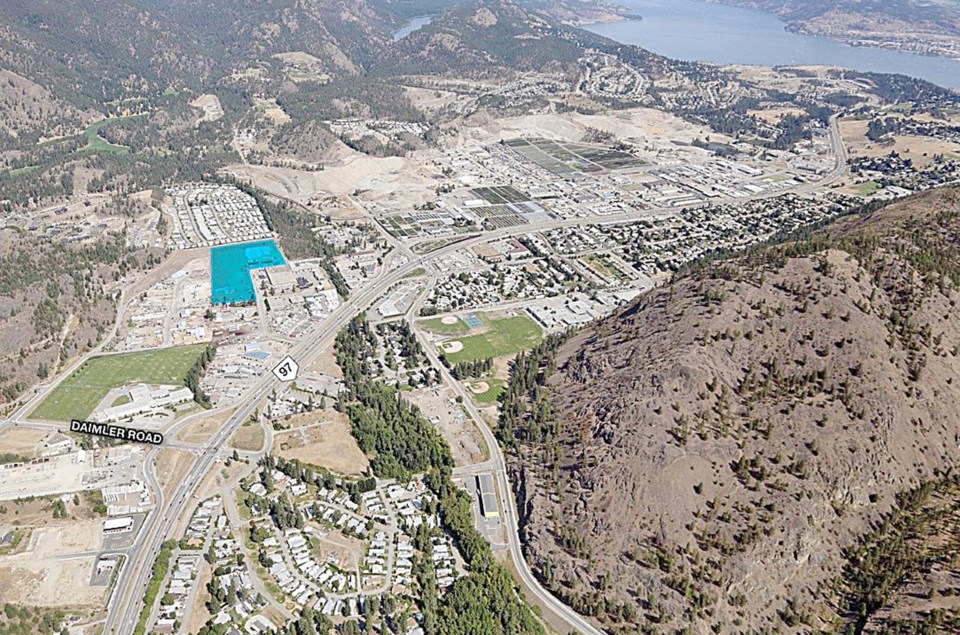Kelowna’s Denciti Development Corp. has sold out two industrial strata buildings before the slabs were even poured on its West Kelowna projects. A third phase that hasn’t even started yet is heading in the same direction.
“I have never seen demand this strong,” said Steve Laursen, Denciti’s sales agent for the West Kelowna Industrial Park and a commercial broker with Royal LePage Kelowna. “Continuing a three-year trend, vacancy rates are declining, sitting at sub 1 per cent, and lease rates are rising, having increased 8.6 per cent over the past year. Occupants are looking for longer-term solutions for their business but are having trouble finding quality available space.”
The tight market and rising lease rates have drawn investors, virtually all from the Lower Mainland, Laursen said. The first of the West Kelowna buildings, at 37,000 square feet, was bought for $265 per square foot by a Vancouver investor who plans to rent the space out, he noted.
The second building was also sold to a single owner-occupier, but that buyer has configured the 39,000 square feet into seven units, some of which could be leased.
Industrial lease rates in West Kelowna are around $12 to $13 per square foot, but they can spike to $17 per square foot in Kelowna, where a strata project sold out last year at $290 a square foot.
Denciti Development recognized the need to develop in Kelowna after seeing businesses driven out of the Metro Vancouver market by low vacancy rates and high prices, according to company principal Garry Fawley, a 40-year veteran of the development industry.
West Kelowna Industrial Park sits on one of the last large plots of freehold land left to be developed in West Kelowna, he said.
The West Kelowna Industrial Park, which covers 10.3 acres, includes two more phases. Future phases of the development will be able to accommodate medium to large uses of up to 200,000 square feet.

“There has been pent-up demand because this is the first new project in the area in seven years and we have strong interest in the remaining phases,” said Fawley. “Kelowna has roughly only 80,000 square feet of vacant industrial space for the entire market available.”
Land values changing
Kelowna industrial land has been about a third the cost of that in Metro Vancouver, but that is changing. Laursen said industrial sites in Kelowna proper are selling for $1.4 million an acre. With West Kelowna virtually out of freehold land (as opposed to First Nations leased land), he forecast future industrial expansion would be near the airport and north towards Vernon. Some older manufacturing plants in the northern zone are now being sold for redevelopment, and industrial land prices are in the $550,000-per-acre range.
A shut-down glass manufacturing plant covering 450,000 square feet is being repositioned for modern industrial development, he noted.
Much of Kelowna’s industrial demand is driven by distribution space, the cannabis industry – which usually buys rather than leases space – and small to mid-size businesses, Laursen said.
According to a third-quarter 2019 industrial survey by Colliers International, Kelowna has 10.9 million square feet of industrial space and less than 37,000 square feet, or 0.4 per cent, is vacant. Colliers found about 210,000 square feet under construction, the largest being a 65,000-square-foot complex by Vancouver-based IntraUrban Enterprise.
Vernon, about a half-hour drive north of Kelowna, has 12.5 million square feet of industrial space with a 0.5 per cent vacancy rate, according to Colliers, and the average lease rate is $12.55 per square foot. There is nothing under construction, though 205,000 square feet was completed in Vernon last year.
Kamloops residential boom
Kamloops, which is closer to Vancouver than Kelowna, saw $1.55 million worth of industrial building permits issued last year, but that was dwarfed by the record-setting $288.3 million in total permits.
It is residential construction and a new hospital project, not industrial, that are driving development in the city.
Kamloops boasts more than 120 fabrication and manufacturing companies, but in a 2018 report the city suggested a shortage of industrial land was persuading some companies to relocate to Kelowna.



